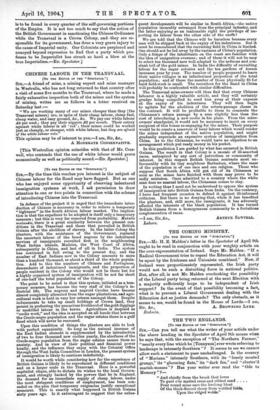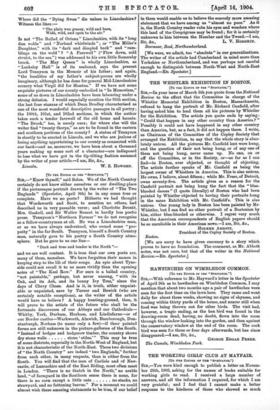Is not "The Ballad of Oriana " Lincolnshire, with its
"long dun wolds " and " Norland whirlwinds " ; or "The Miller's Daughter," with its "dark and dimpled beck" and " ram- blings on the weld" ? "A Farewell" ("Flow down, cold rivulet, to the sea") was addressed to his own little Somersby brook. "The May Queen" is wholly Lincolnshire, as " Locksley Hall" is of its seaboard, says the present Lord Tennyson in the Memoir of his father; and again, "the localities of my father's subject-poems are wholly imaginary, although he has done for general Mid-Lincolnshire scenery what Virgil did for Mantua." If we have not some exquisite pictures of our county embodied in "In Memoriam," some of us down in Lincolnshire have been labouring under a strong delusion. I would especially mention the 95th section, the last four stanzas of which Dean Bradley characterised as one of the most wonderful descriptive passages in all poetry; the 100th, 101st, and 102nd sections, in which the author takes such a tender farewell of the old home and haunts. "The Brook," too, is surely ours; for where else will the writer find "twenty thorps," as are to be found in the eastern and southern portions of the county ? A statue of Tennyson is shortly to be erected in Lincoln, and we who are jealous of losing anything appertaining to our county as connected with our bard—and as, moreover, we have been about a thousand years making up some sort of a character—are indisposed to lose what we have got in the tip-tilting fashion assumed by the writer of your article.—I am, Sir, do., Lincoln. W. S. HOWDZIN.
[To TBDI EDITOR OF TER ..BerrraTOR.1 Ore,—" Know thyself," said Solon. We of the North Country certainly do not know either ourselves or our dwelling-place if the picturesque portrait drawn by the writer of "The Two Englrulds " (Spectator, April 9th) be in any sense true or complete. Have we no poets ? Hitherto we had thought that Wordsworth and Scott, to mention no others, had described us in very passable verse ; and Charlotte Bronte, Mrs. Gaskell, and Sir Walter Besant in hardly less poetic prose. Tennyson's "Northern Farmer" we do not recognise as a fellow-countryman at all. He was a Lincolnshire man, or so we have always understood, who owned some " pro- putty " in the far South. Tennyson, himself a South Country man, naturally gave to his poetry a South Country atmo- sphere. But he gave to us one line —
"Dark and true and tender is the North "—
[We were, we admit, too "absolute" in our generalisations. The writer of the article had Cumberland in mind more than Yorkshire or Northumberland, and was perhaps not careful enough to distinguish between North-West and North-East England.—En. Spectator.]
THE WHISTLER EXHIBITION IN BOSTON.
[To Tem EDITOR or las "Brsoraroo.']
SIR,--I21 your issue of March 5th you quote from the National Review to the effect that the Committee in charge of the Whistler Memorial Exhibition in Boston, Massachusetts, refused to hang the portrait of Mr. Richard Canfield, after having asked him to lend them all his pictures by Whistler for the Exhibition. The article you quote ends by saying: "Could that happen in any other country than America P" Possibly it could not have happened in any other country than America, but, as a fact, it did not happen there. I write, as Chairman of the Committee of the Copley Society that arranged the Exhibition, to say that the whole story is abso- lutely untrue. All the pictures Mr. Canfield lent were hung, and the question of their not being hung, or of any one of them not being hung, never came up. No one, on or off the Committee, or in the Society, or—as far as I can find—in Boston, ever objected, or thought of objecting. The article further speaks of Mr- Canfield as being the largest owner of Whistlers in Ametica. This is also untrue. He owns, I believe, about fifteen ; while Mr. Freer, of Detroit, OWES seventy-five. The article gives as a reason for the Canfield portrait not being hung the fact that the "blue- blooded dames" (I quote literally) of Boston who had been painted by Whistler objected to having their portraits hung in the same Exhibition with Mr. Canfield's. This is also untrue. One young lady in Boston has been painted by Mr. Whistler, but I can find no other portrait of a Bostonian by him, either blue-blooded or otherwise. I regret very much that the American correspondents of English papers should be so unreliable in their American news.—I am, Sir, do.,
Holmes Annorr, President of the Copley Society of Boston. Boston.







































 Previous page
Previous page